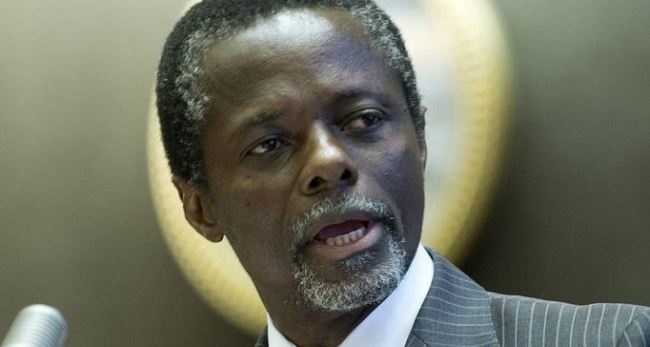
In the Central African Republic, the war has raged for more than three months in the center-east of the country between factions from the former Seleka. The FPRC-MPC coalition led by Nourreddine Adam wants to take Bambari, the country’s second city, where Ali Darass’s UPC has its headquarters. For now, the Minusca prevents the progress of the elements of the coalition which does not however renounce its objective. Mediations have increased in recent times, notably under the aegis of the African Union, to try (in vain) to obtain a ceasefire, and to urge armed groups to resume discussions on DDR, disarmament . Perfect Onanga Anyanga is the boss of Minusca, the UN peacekeeping operation in the CAR. He is the guest of RFI.
RFI: Can the city of Bambari fall into the hands of the FPRC-MPC?
Perfect Onanga Anyanga: No, not until the Task Forces are present. The coalition forces have advanced, we are today, let’s say, on the same ground. Minusca faces the elements of the coalition. Our wish, of course, is to avoid any military involvement. The use of force is only a last resort. Our message has always been clear: there is a choice, that of peace is better than any other.
By preventing the coalition from taking the city, do not you in any way help the UPC?
No, no … We must understand why Minusca had to ask the belligerents, both the coalition elements and the UPC, to avoid any kind of conflagration, War in Bambari. This country suffered too much. Blood does not stop flowing. We have said that when the country was just beginning to re-establish constitutional order, that commendable peace efforts were underway, there was no question that we could remain powerless to advance forces that wanted To give Bambari a field of battle. And that’s why we said no to both sides. For the time being, the UPC forces are present in Bambari, but not for war. So we say that Bambari should not fall – not only that Bambari should not fall – that Bambari should never be a battlefield because those who will pay the price, again will be the civilian populations.
Does Ali Darass have to leave Bambari?
That is a request we have heard. I believe that for the serenity of the Central African civilian populations Bambari should never be under the control of armed groups, whatever they may be.
A number of international mediations have been initiated. Do you feel that the message is coming from the armed groups?
I believe. I have good hope. We are in contact, we are talking to each other and everywhere I have heard a willingness to go to dialogue, to find solutions. Obviously, everyone does not put the same thing in the outcome of these consultations, but what is important is that there seems to be a real desire to go to peace and that is why the United Nations United will join this effort.
The DDR program remains a priority?
Absolutely! Every effort must be made to reduce the level of armaments in the country, especially those weapons that are in the hands that do not have the right to do so. Despite the difficulties, we are in a state of law. So the legitimacy of the force must reside with the state and therefore we will continue around the government this effort so that the DDR program advances.
But how can we bring armed groups who are still refusing DDR – the FPRC in particular – into the discussion table without falling into already-experienced systems that do not work?
This is going to be a challenge for the Central Africans. I have before me a text of the PRGF in which it states that it agrees to observe the political agenda and the plan to end the crisis that has been initiated by the national authorities and the international community. This commitment seems clear to me and therefore we must give a chance to this dialogue. I also understand that the President of the Republic himself does not have a dogmatic view on the outcome of this dialogue, provided it obviously reflects the expectations of the Central Africans they expressed at the Bangui forum.
But how to discuss a possible ceasefire with armed groups that are still fighting on the ground?

